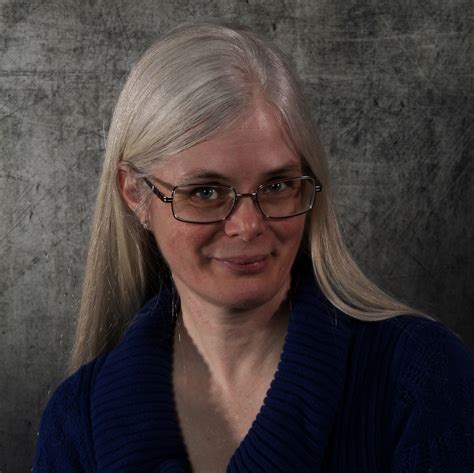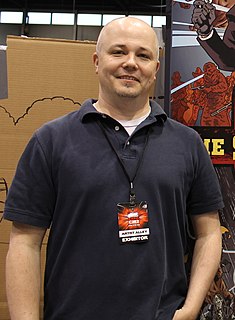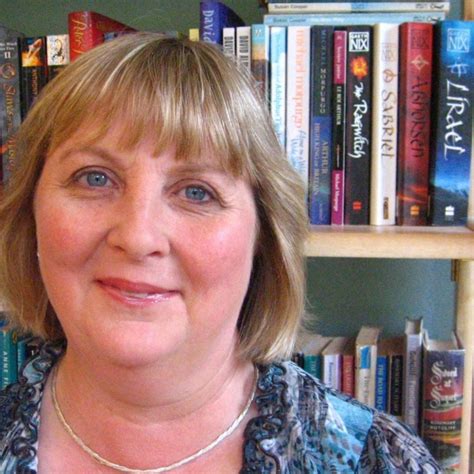A Quote by Mary J. Miller
A story works when there's momentum, life behind the words. Some stories have this and others don't, and it's difficult to say why this is. If all stories "worked," though, writing wouldn't be much of a challenge; it wouldn't be art.
Related Quotes
Humans like stories. Humans need stories. Stories are good. Stories work. Story clarifies and captures the essence of the human spirit. Story, in all its forms—of life, of love, of knowledge—has traced the upward surge of mankind. And story, you mark my words, will be with the last human to draw breath.
We can tell people abstract rules of thumb which we have derived from prior experiences, but it is very difficult for other people to learn from these. We have difficulty remembering such abstractions, but we can more easily remember a good story. Stories give life to past experience. Stories make the events in memory memorable to others and to ourselves. This is one of the reasons why people like to tell stories.
I think the reason the stories are briskly paced, when they are, is that I like story. I like stories where things happen and there are surprises and reversals, in addition to vivid characters and a memorable voice. So those are the kinds of stories I try to write. And it turns out that's pretty much the only kind of writing that works for TV. It's a medium that just devours story, demands surprises and reversals. So my sensibility is suited to TV storytelling, at least as we think of it today.
The language of the culture also reflects the stories of the culture. One word or simple phrasal labels often describe the story adequately enough in what we have termed culturally common stories. To some extent, the stories of a culture are observable by inspecting the vocabulary of that culture. Often entire stories are embodied in one very culture-specific word. The story words unique to a culture reveal cultural differences.
We are shaped by stories from the first moments of life, and even before. Stories tell us who we are, why we are here, and what will become of us. Whenever humans try to make sense of their experience, they create a story, and we use those stories to answer all the big questions of life. The stories come from everywhere--from family, church, school, and the culture at large. They so surround and inhabit us that we often don't recognize that they are stories at all, breathing them in and out as a fish breathes water.
I started writing the book without realizing I was writing a book. That sounds stupid, but it's true. I'd been trying and failing to make a different manuscript work, and I thought I was just taking a break by writing some short stories. I'm not a very good short story writer - the amazing compression that is required for short stories doesn't come easily to me. But anyway, I thought I'd try to write some short stories. And a structure took shape - I stumbled upon it.
Each of us is comprised of stories, stories not only about ourselves but stories about ancestors we never knew and people we've never met. We have stories we love to tell and stories we have never told anyone. The extent to which others know us is determined by the stories we choose to share. We extend a deep trust to someone when we say, "I'm going to tell you something I've never told anyone." Sharing stories creates trust because through stories we come to a recognition of how much we have in common.
I didn't know how story worked. So, when writing the screenplay, people introduced me to the science of it. And I'm grateful. I'll probably use that information for the rest of my career, in terms of writing novels or writing stories. And then, of course, to help me live a better story, a more meaningful story
Kiran says (the shelf) is full of stories. If it is, then I like fairy stories. Fairy stories are fair. In them wishes are granted, words are enchanted, the honest and brave make it safely through to the last page and the baddies either have to give up their wickedness for ever and ever, no going back, or get ruthlessly written out of the story, which they hardly ever survive. Also in fairy stories there are hardly any of those half-good half-bad people that crop up so constantly in real life and are so difficult to believe in.
































